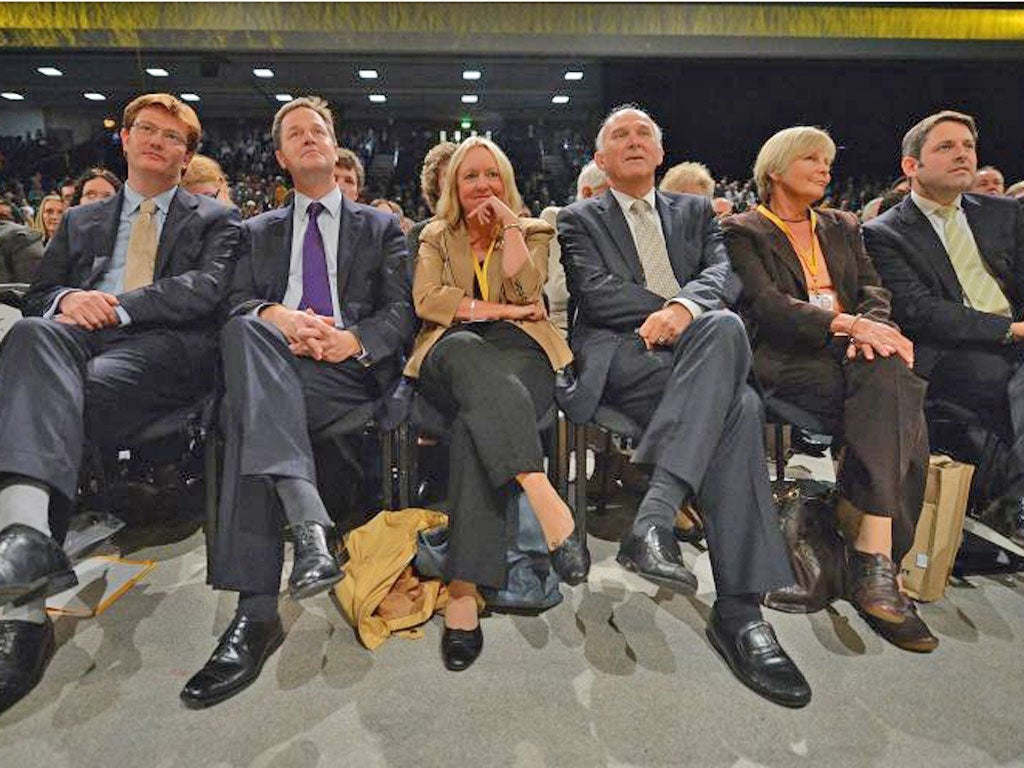Council tax hike on the cards for £1m home owners
Lib Dems press for new council tax bands to take into account leap in value of most expensive houses

People with homes worth more than £1m face a rise in their council tax bills as the Coalition Government considers new taxes on wealth.
The idea will be pushed by the Liberal Democrats when George Osborne, the Chancellor, tables his demands for more spending cuts.
Nick Clegg will demand two or three new council tax bands at the top of the scale as an alternative to the Liberal Democrats' favoured mansion tax on homes worth more than £2m, which David Cameron has blocked. The eight bands on which council tax is based in England – from Band A (up to £40,000) to Band H (over £320,000) – have not changed since 1991 even though property prices have risen sharply. This means that all homes worth more than £320,000 in 1991 pay the same council tax in their local authority area.
Senior Liberal Democrats suggested that the council tax plan could target the same householders as would be affected by a mansion tax, originally set at £1m but later raised to £2m. Mr Osborne is said to be open-minded about the new proposals, while Mr Cameron is more cautious. The Conservatives are thought unlikely to want to hit people with homes worth less than £1m.
A senior Liberal Democrat source told The Independent: "A mansion tax remains our top priority. We have not been able to persuade the Conservatives of its merits but we will continue to make the case for it. However, we believe the best type of wealth tax is one that targets high-end property because it would be difficult to avoid."
Liberal Democrats point out that higher bands could be added at the top of the scale without a time-consuming revaluation of all properties, which would be politically sensitive in the run-up to a general election and could provoke a flood of appeals from aggrieved householders. A house worth £320,000 in 1991 would be worth about £750,000 today, and sources indicate the new bands would only affect those whose property is now valued at more than £1m. This would prove more politically acceptable to the Conservatives than hitting people whose homes were worth less than that.
The shake-up could form part of the negotiations between the Coalition parties ahead of Mr Osborne's autumn statement in December or a government-wide spending review due next year. In an interview with The Independent on Saturday, Mr Clegg revealed that the Liberal Democrats would not sign up to a new round of spending cuts unless the Tories agreed to new taxes on wealth – a message he has reiterated at his party's Brighton conference.
The Deputy Prime Minister said yesterday: "I don't think it's right that someone in a £4m palace in the middle of London pays the same council tax as someone in a four-bedroom family home elsewhere in London."
A senior Liberal Democrat source said: "We want to do more on a wealth tax. Work is being done at the moment and council tax is one of the things we are looking very closely at. There is no reason that council tax would have to go up for everyone. It does not have to be uniform across bands.
"It's very odd that people who have been lucky enough to be able to buy a large house enjoy a freeze, just as people who have a very small property. We have the building blocks in place to do something on property – obviously they would fall short of a mansion tax, but it would still be a move towards it."
Lord Oakeshott, the party's former Treasury spokesman, will propose an amendment at conference today, saying a mansion tax should remain the Liberal Democrats' top priority "as a first step towards wealth taxation designed to reduce inequality".
Join our commenting forum
Join thought-provoking conversations, follow other Independent readers and see their replies
Comments